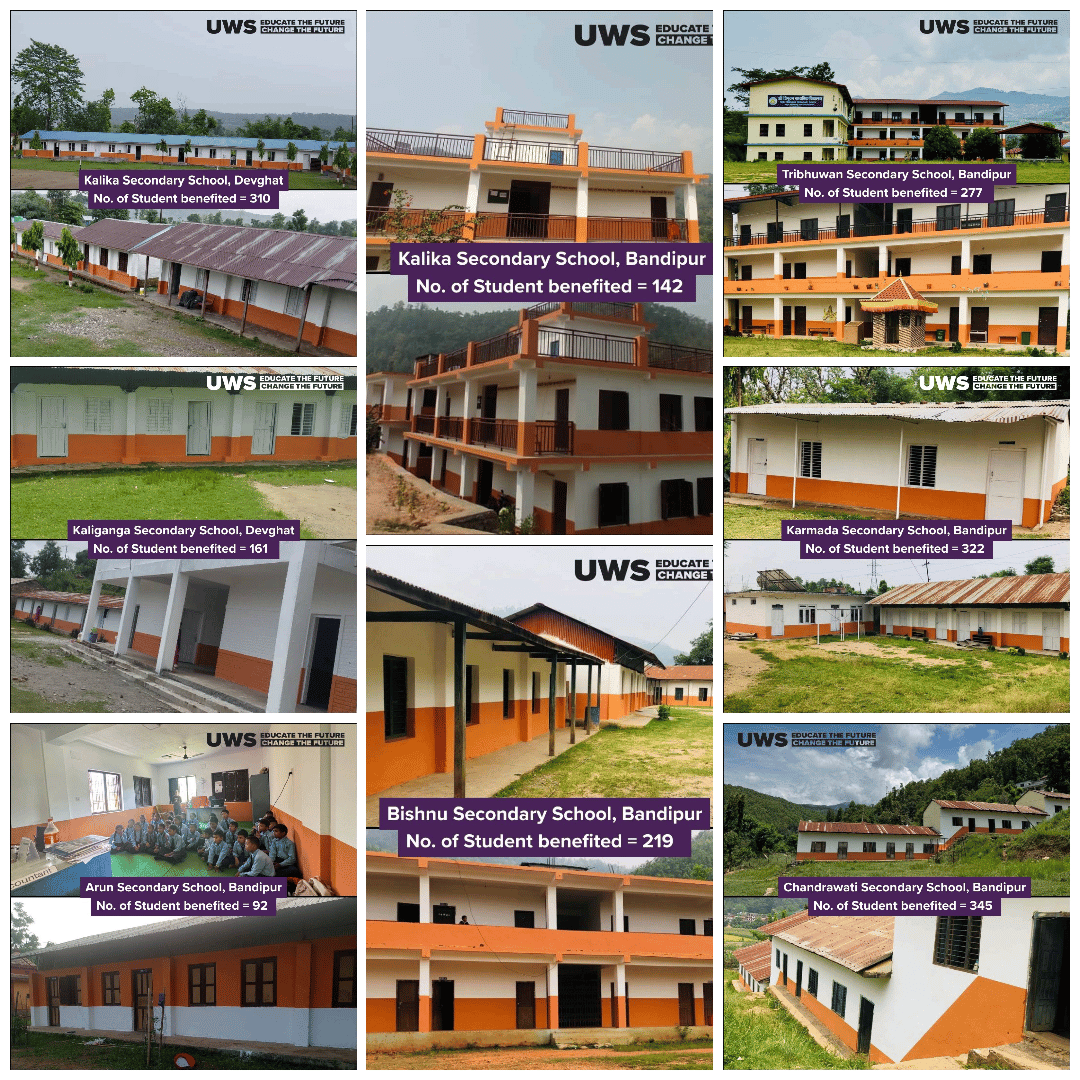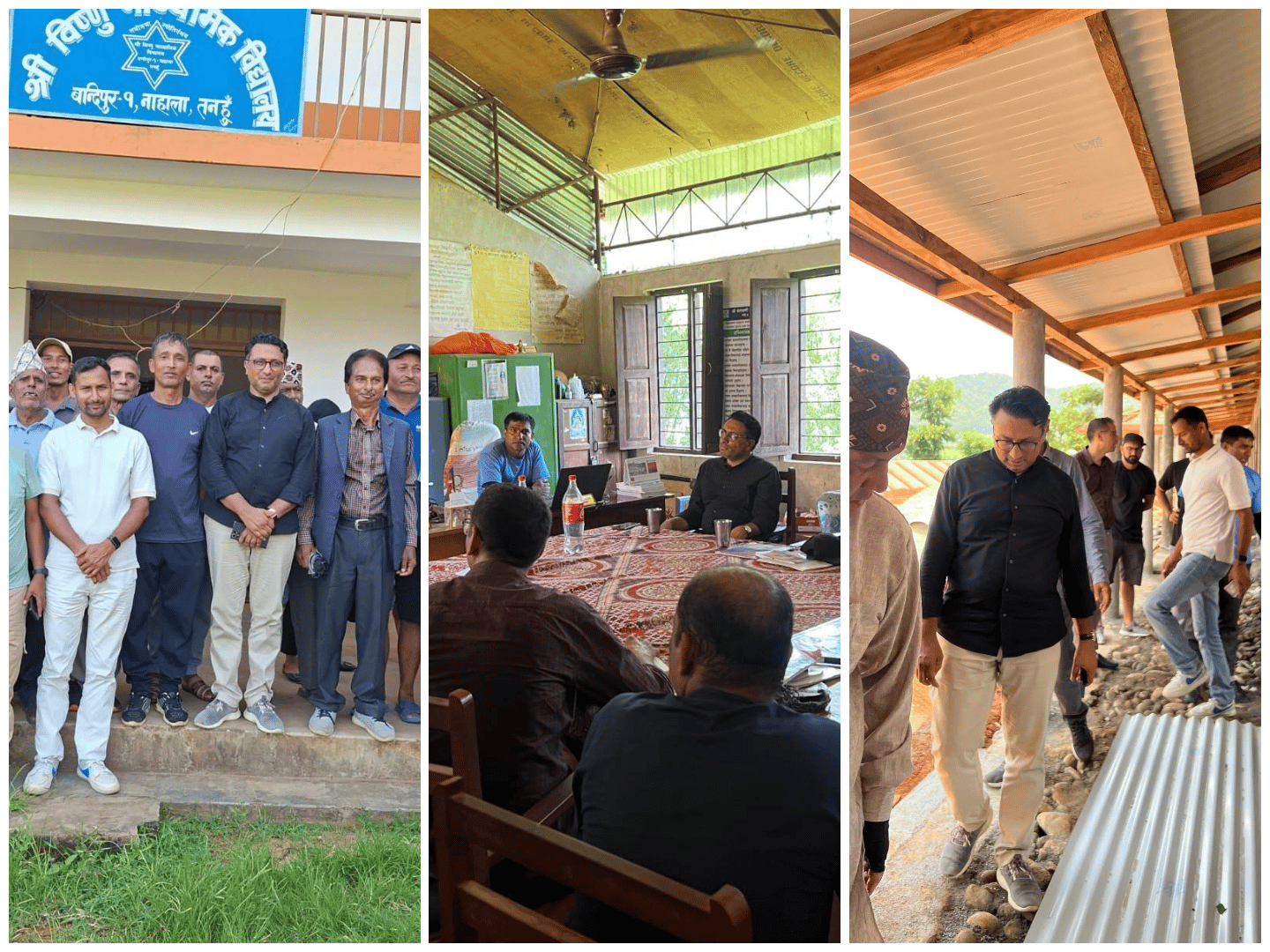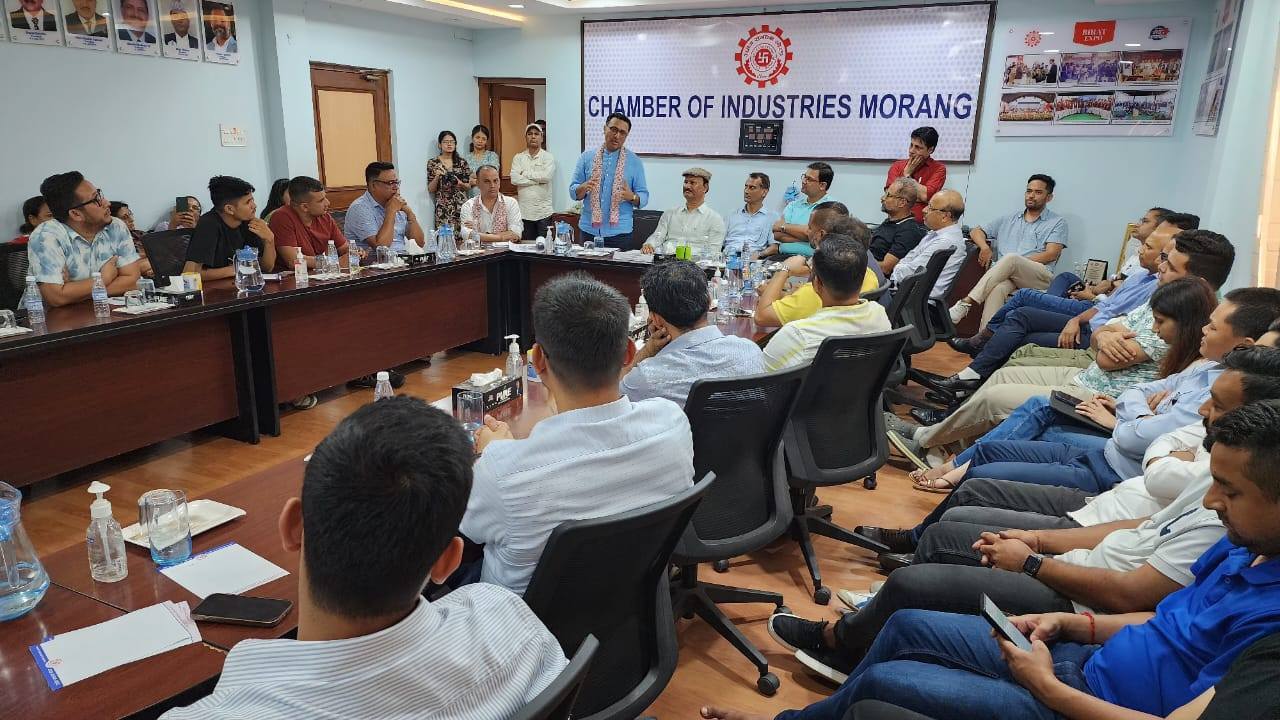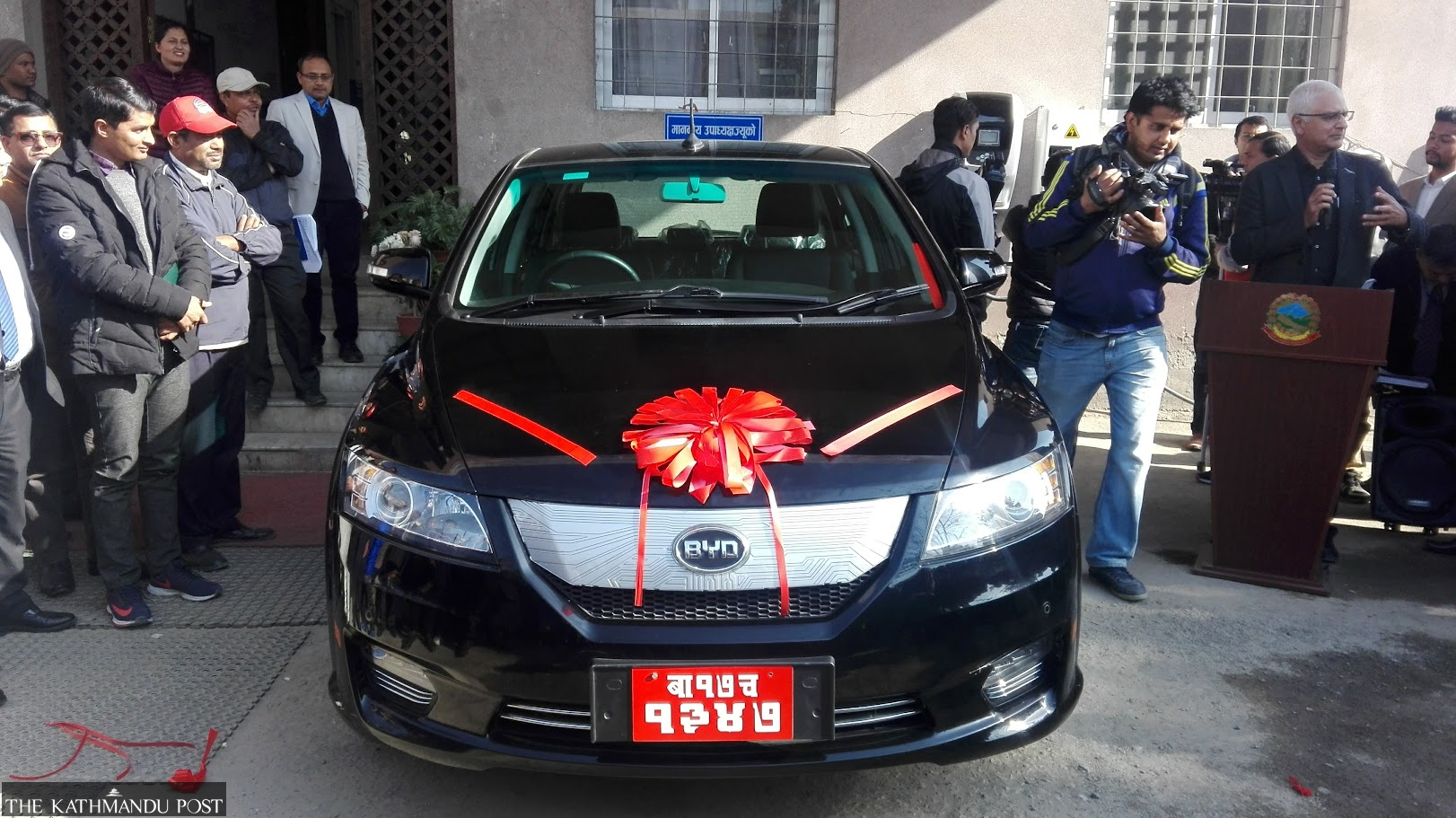- The Office of Swarnim Wagle: Shared Progress (समुन्नति)
- Posts
- Local Roots, Global Reach: July Reflections
Local Roots, Global Reach: July Reflections
As always, I believe in staying connected and transparent about the work we’re doing, whether in Tanahun (my constituency), on the national stage, or in international forums. July was a month of listening, engaging, and pushing for progress across key areas like education, economic reform, and public accountability. Here’s a quick snapshot of the month’s highlights, reflections, and ongoing efforts.
Investing in Our Classrooms: One Year of the School Reform Program
This July, we completed the first annual review of the School Reform Program. Soon after being elected as Member of Parliament, a new pilot program in the education sector was launched in partnership with United World Schools (UWS) across 10 schools. With generous support from Surya Nepal, the initiative aimed to create an inviting learning environment through painting and renovation efforts that encourage children to attend school and engage in learning. The program will gradually be expanded to cover all municipalities within Tanahun-1.

As part of this broader effort, we also launched the “Dignified Teachers for Quality School Education” campaign. The goal is to strengthen student learning by empowering motivated, dedicated, creative, qualified, trained, and well-equipped teachers. To sustain impact, we are committed to mobilizing additional resources to address the critical needs identified by teachers, school management committees, and parents.

I’m grateful for the strong collaboration among teachers, school management committees, parents, and local governments. Classrooms are cleaner, learning environments are improving, and community ownership is growing.
Engaging with Entrepreneurs in the East
During my recent visit to Biratnagar, I had the opportunity to participate in a dynamic policy dialogue organized by the Chamber of Industries Morang.
The discussion focused on RSP’s evolving economic vision and its relevance for Nepal’s industrial future. It was heartening to hear directly from local entrepreneurs about the challenges they face and the reforms they hope to see. I was joined by fellow MP Manish Jha, and together we reaffirmed our commitment to fostering a more enabling environment for private sector growth and innovation.

Reimagining Aid: My Reflections from a Regional Dialogue with the Asia Foundation
I was recently invited to speak at a regional webinar hosted by the Asia Foundation, “Crisis or Catalyst? Asia’s Take on the Future of Aid and Development Cooperation.”
It was a timely discussion on how countries like Nepal and others across Asia are reshaping the future of development aid, moving from passive recipients to proactive partners. I shared Nepal’s own development experience, the need for more tailored cooperation, and why reforming the global aid architecture is both urgent and possible.
More on Rastriya Swatantra Party: From Signatures to Solutions
In recent weeks, the Rastriya Swatantra Party has intensified its national signature campaign. It is an initiative aimed at building grassroots awareness for political accountability and structural reform. RSP volunteers and leaders have been engaging citizens directly, collecting signatures in support of the party’s reform agenda. The strong public response reflects growing disillusionment with the status quo and a collective appetite for change.
The campaign is not just symbolic, it’s a people-powered push to make the upcoming electoral cycle about real issues, not old narratives.
Special Reading
Electric Mobility in Nepal: A Vision Realized
A recent New York Times article (July 28, 2025) highlighted Nepal's remarkable transformation: approximately 76% of newly imported four-wheeled vehicles are now electric—among the highest rates globally.
When I served as Vice Chair of Nepal’s National Planning Commission, I advocated for a strategic shift toward electric mobility not just as a symbolic gesture, but as a long-term investment in our clean energy future. In 2017, we launched an early procurement of electric vehicles for government use. At the time, it was seen by many as aspirational. But I saw it as a necessary first step toward realigning Nepal’s transport policy with our hydropower advantage and climate commitments.
I am proud that this early policy stance helped lay the foundation for today’s EV ecosystem, one that now supports cleaner technologies with lower import duties, growing infrastructure, and growing consumer confidence. Nepal is showing the world what is possible when policy, market conditions, and environmental priorities align.
As we look ahead, I remain committed to accelerating this transition, especially through policies that expand EV access to public transport, ensure battery safety and recycling, and maintain long-term fiscal and environmental sustainability.
This newsletter is prepared by The Office of Swarnim Wagle, MP.


